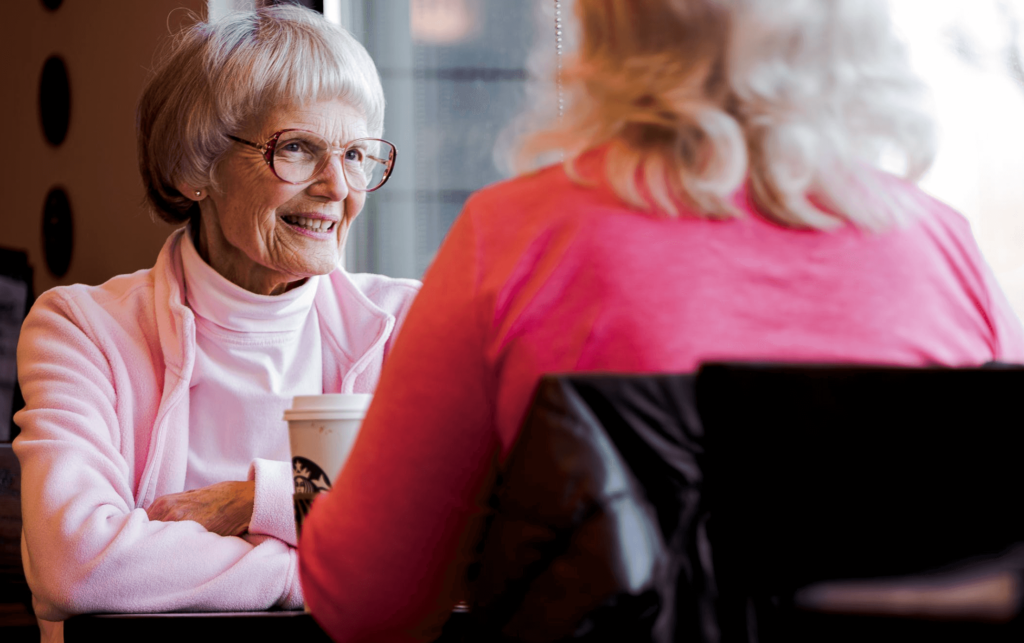Maintaining Safety for Seniors During a Pandemic
No other segment of the American population has been impacted by the coronavirus as severely as those aged 65 and older. While the CDC states that 65.1% of COVID-19 cases occurred in people under the age of 49, an incredible 95.3% of deaths occurred in people age 50 and older, making older Americans the highest risk group. So, it makes sense for this segment of the population to be among the first to receive the vaccination.
Here are some of the most commonly asked questions about the Covid-19 vaccination regarding older Americans.
How Was the Vaccine Created So Fast?
The medical science field is far more advanced than the last time a vaccine needed to be created for an infectious disease. We now have a set of standard procedures in place for the development of vaccines, which were applied to the creation of the COVID-19 vaccine.
The addition of newer methods of creating vaccines was also employed, which helped expedite this vaccine’s availability in record time. COVID-19 trials were also much more aggressive compared to vaccines for other infectious diseases.
Were Older Adults Included in the Vaccine Trials?
A review published in September 2020 in JAMA Internal Medicine detailed the efforts of 847 COVID-19 treatment and vaccine trials. It was found that older adults “are likely to be excluded from more than 50% of COVID-19 clinical trials and nearly 100% of vaccine trials.” But this is not necessarily a new practice.
Older adults are regularly omitted during drug development and research trials because of common concerns and anxieties about safety, adverse side effects, and efficacy. Researchers also worry about ethical considerations when “involving a population with potential memory concerns because they have to give their consent to participate.”
Despite the lack of testing on older adults, Pfizer reports that its vaccine is 94% effective in people 65 and older, while Moderna has reported that its vaccine is more than 95% effective, however Moderna has not provided a dedicated statistic for older adults.
What Are the Side Effects of the Vaccine?
Researchers do not fully know the long-term side effects associated with the vaccine simply because not enough time has passed for those effects, if any, to be detected. However, most people are expected to develop mild short-term side effects like those caused by the flu vaccine, such as soreness at the injection site, fever, chills, or headache.
How Much Does the Vaccine Cost?
If you are on a Medicare plan, then Medicare will pay for the vaccine. It’s important to note that seniors should be wary of scams that ask for upfront payment for the vaccine. Other warning signs to watch out for include agents who ask for your Social Security number or promise to get you in a queue for the vaccine instead of scheduling you on the spot.
Who Gets the Vaccine First?
States are permitted to make their own priority lists, however most are vaccinating senior residents of long-term facilities first, or at least very early on in the vaccination process. Individuals over the age of 65 who have underlying medical conditions, such a kidney disease, heart disease, diabetes, and others will fall into subsequent categories.
Are There Vaccine Distribution Issues?
While there have been no reported concerns about distribution to long-term care facilities, there has been some concern about getting the vaccine to the more than the million seniors who are homebound and the other five-plus million with physical impairments that limit their mobility.
The reason these individuals are having difficult access to the vaccine is due to its handling and cold storage requirements. Pfizer’s vaccine needs to be stored at minus 70 degrees Celsius, whereas Moderna’s needs to be stored at minus 20 degrees Celsius.
These stringent storage requirements have made it imperative for special storage equipment to be installed in hospitals, clinics, and other healthcare facilities. For these individuals to receive the vaccine, transportation needs to be arranged to and from vaccination sites.
COVID-19 Vaccine Truth vs. Myth
With so much media coverage about the vaccine, much of it politicized, there is a lot of incorrect information being spread. Here are some of the most common myths about the COVID-19 vaccine and the truth about them.
- Myth #1: I can throw my mask away after receiving the vaccine. Truth: The vaccines have proven effective at preventing COVID-19, but it’s currently unknown whether they can block virus transmission. Masks, however, have been proven effective at stopping virus particles from infecting others, so continuing to wear them and following social distancing guidelines will remain an important part of slowing the spread. Plus, protection isn’t immediate after receiving the vaccine. It can take several weeks before the body develops memory cells, so it is possible for you to still get infected before that happens.
- Myth #2: Getting the vaccine means you’re immune for life. Truth: It is not currently known just how long the vaccine will protect those who receive it. Experts believe that boosters may be required every few years, as with the tetanus vaccine, or if the coronavirus mutates quicker than expected, then annual vaccinations may be required, as with the flu vaccine.
- Myth #3: People who had COVID-19 do not need vaccinated. Truth: People who contract COVID-19 and recover do gain some immunity, however it is unknown as to how long that immunity lasts as some people have contracted the disease more than once. People are being advised to get the vaccine even if they had COVID-19 previously.
Find Out What Older Americans Who Have Received the Vaccine Are Saying About It
If you want to learn more about what to expect after receiving the COVID-19 vaccine, we recommend visiting AARP, where older Americans who have already received the vaccine share their experiences.
Read more from Diane: Ultimate Senior Living Resource Guide >>
Here are more resources to help you learn more about COVID-19 vaccine expectations and recommendations:
- CDC looks at this Life Choice – for a healthy COVID and elder care vaccinated lifestyle
- Golden Placements Adult Services – COVID and Senior Facilities

Diane Delaney, Senior Placement Specialist
Diane Delaney founder of Golden Placement Services helping families make educated decisions relieve stress in uncertain senior housing crucial moments. Beside being an accomplished executive manager, Director of Operations in senior housing she enjoys sharing her experience by writing about the full spectrum of the transition process for seniors and family members.







